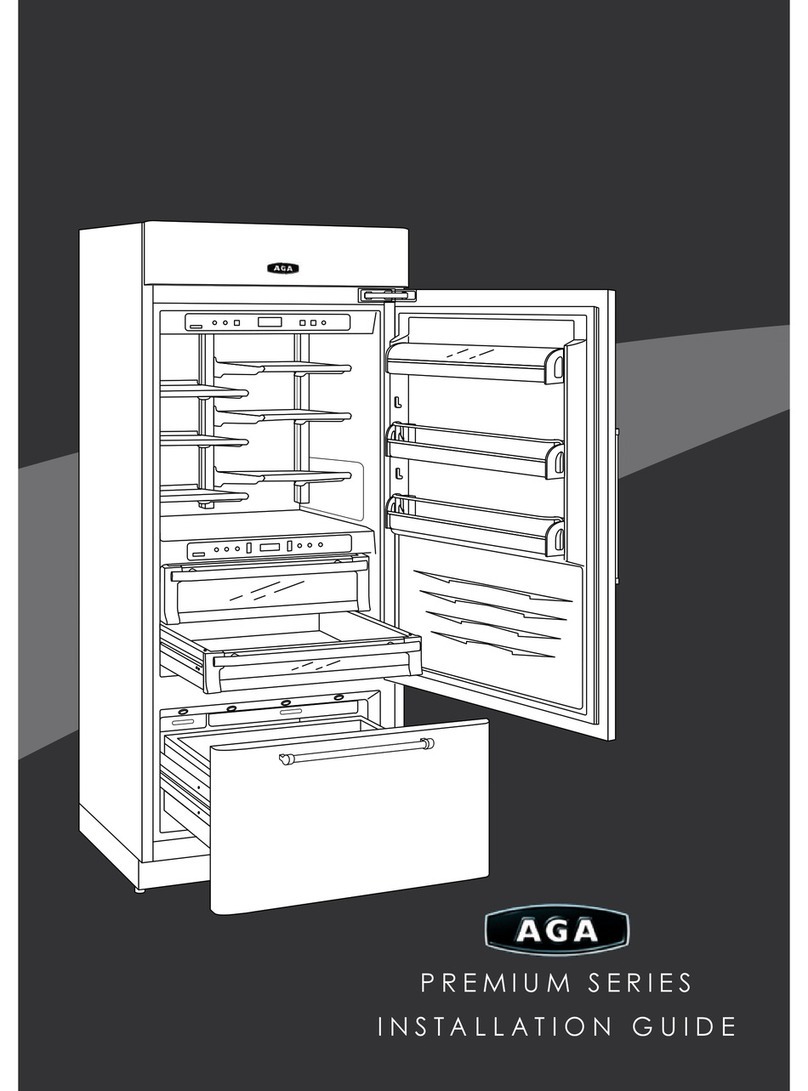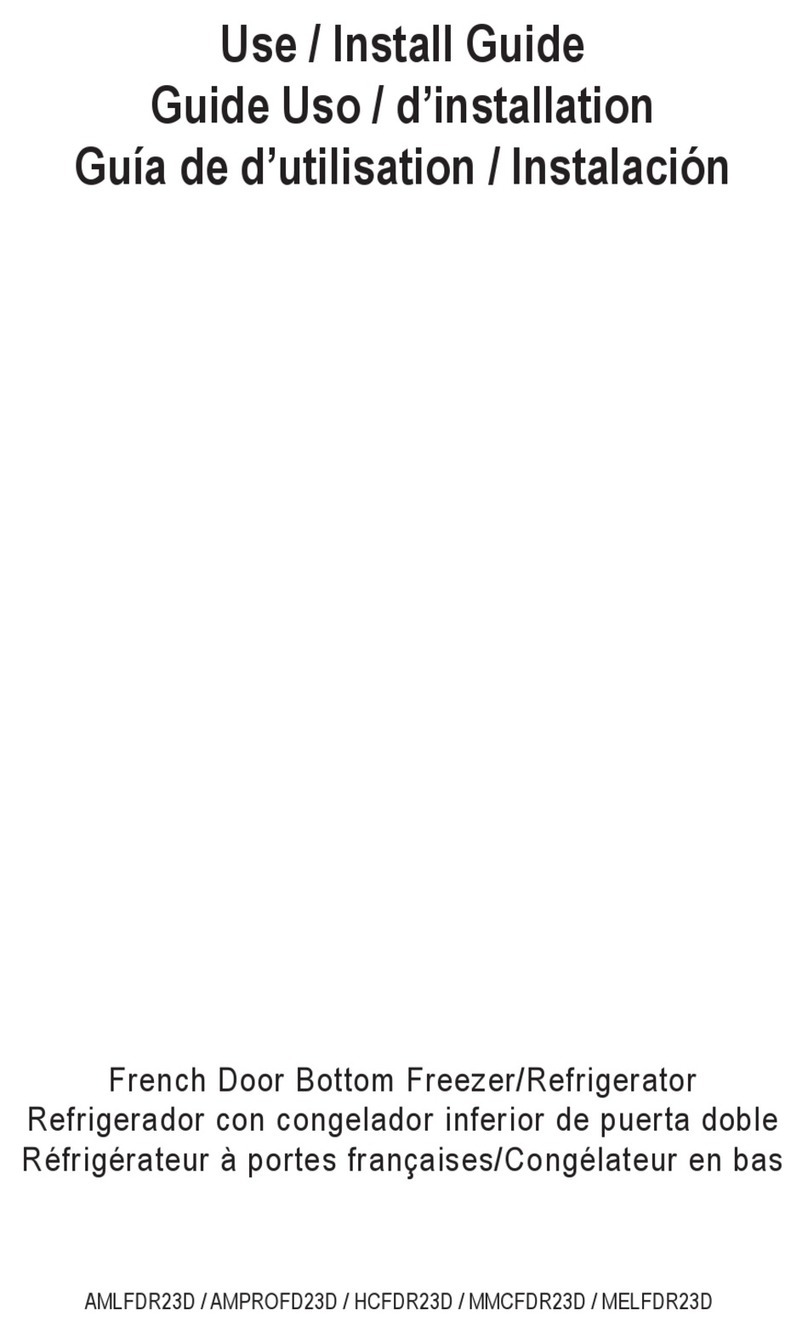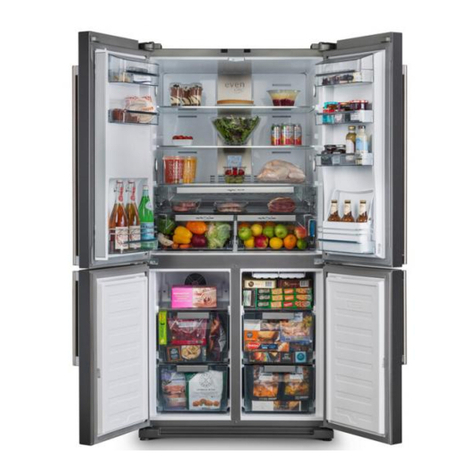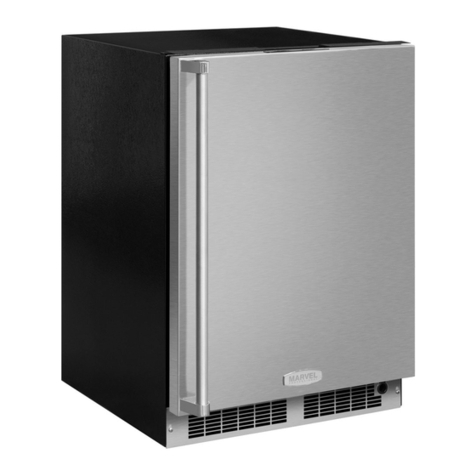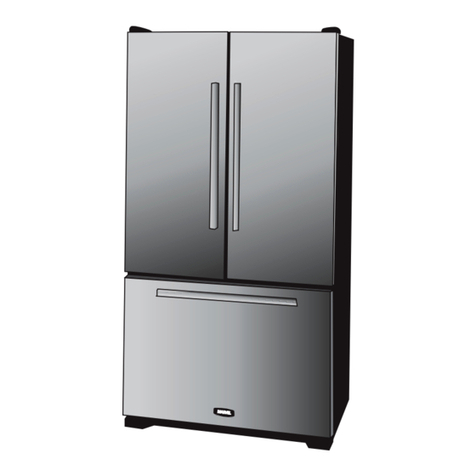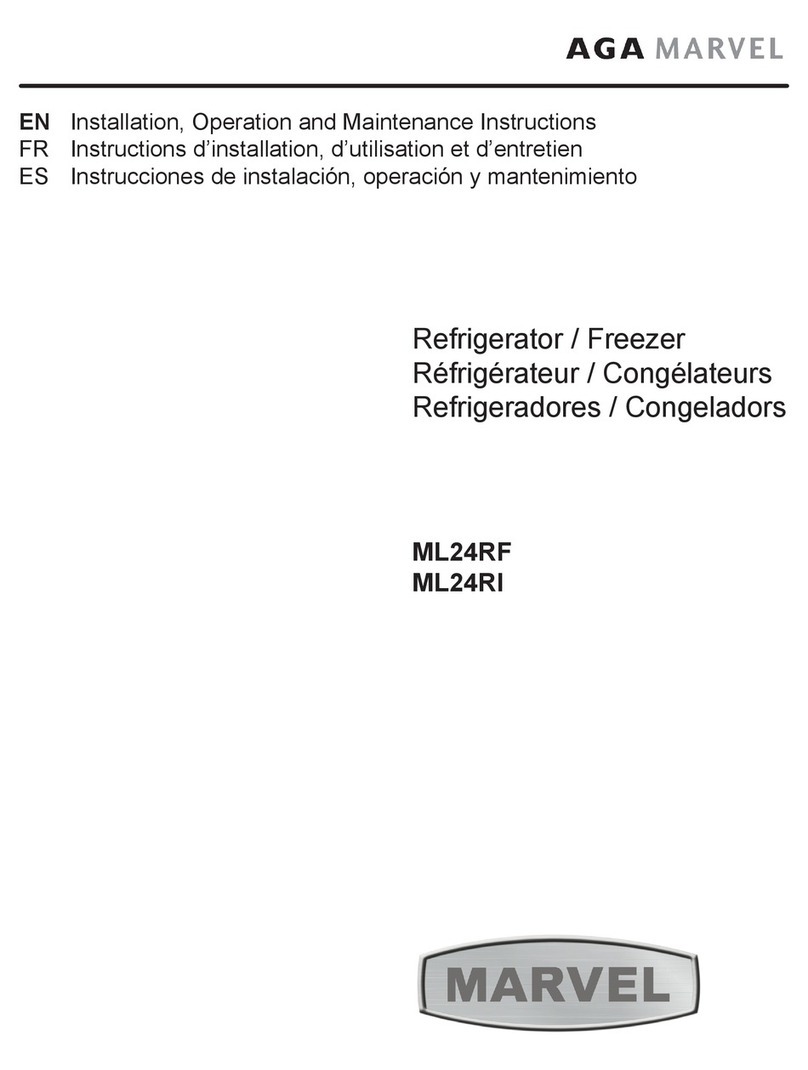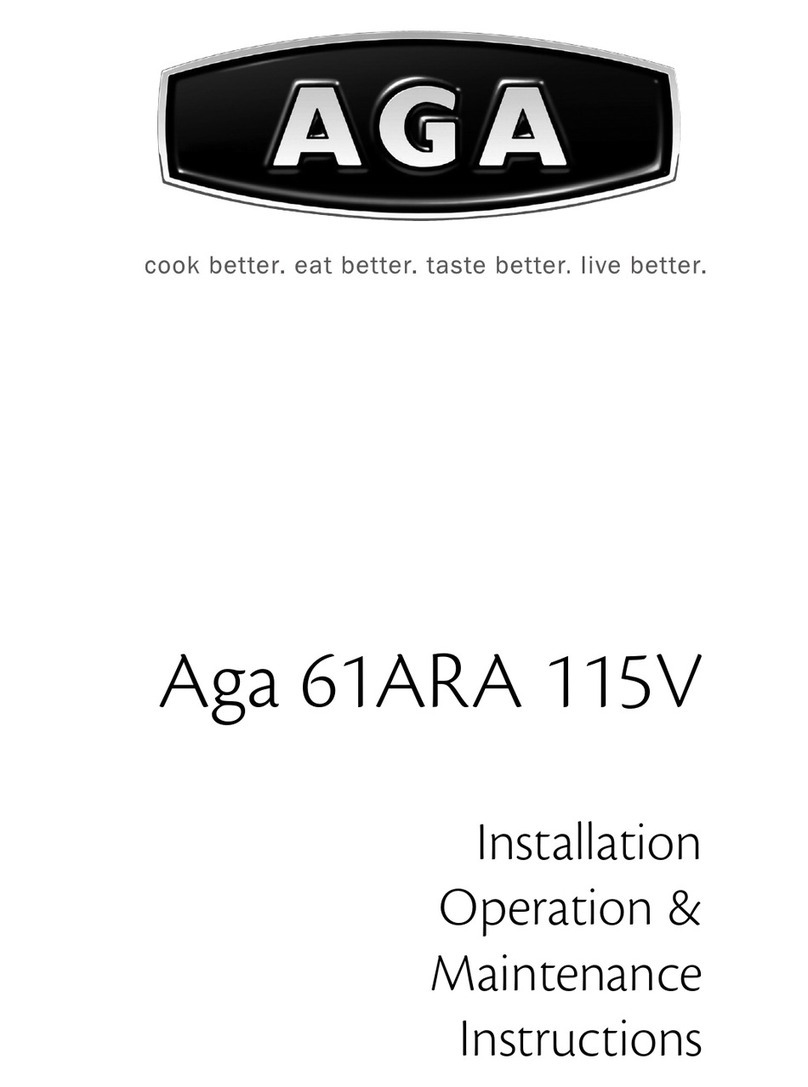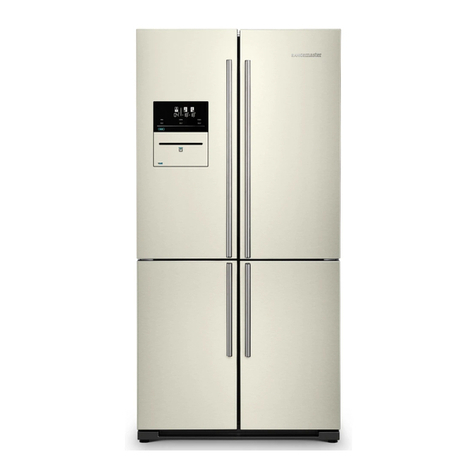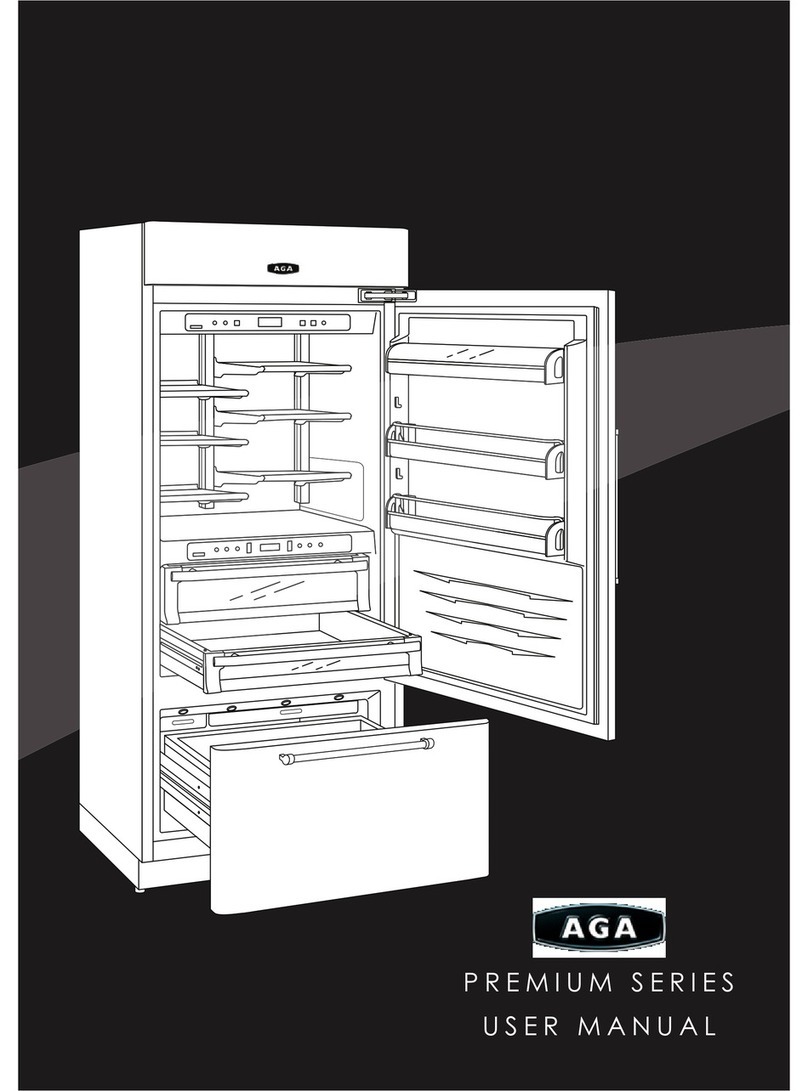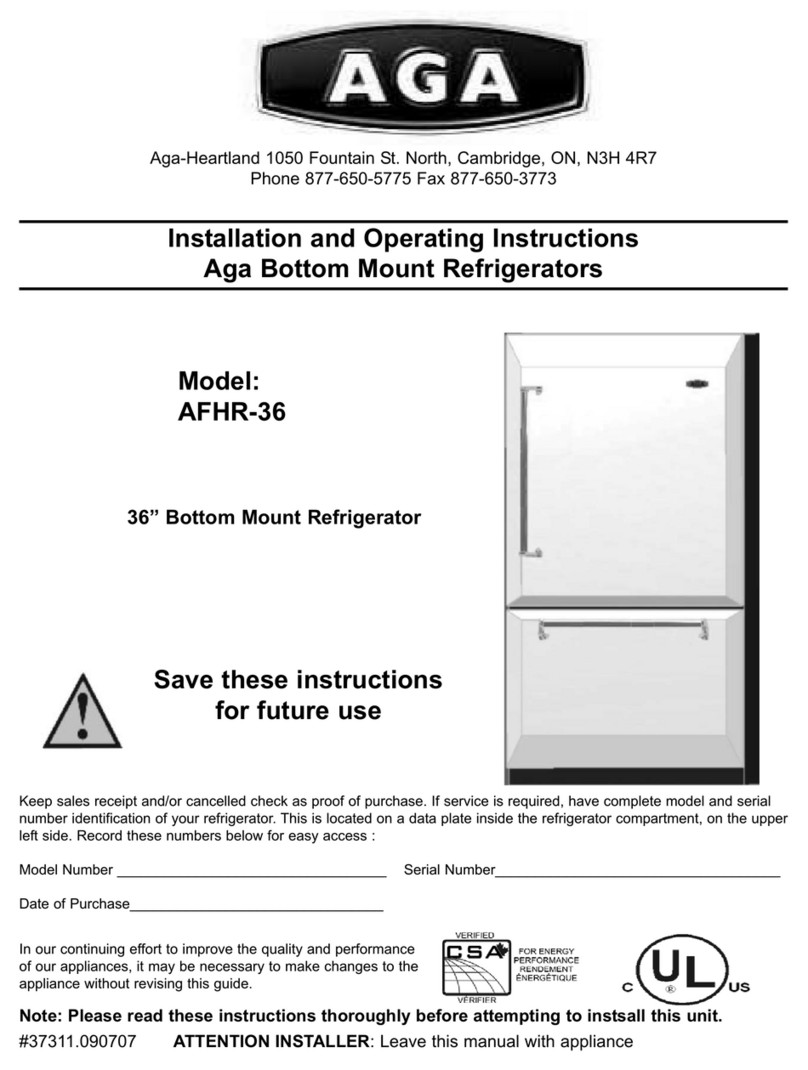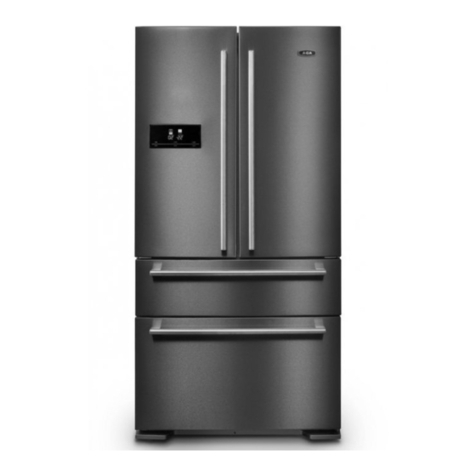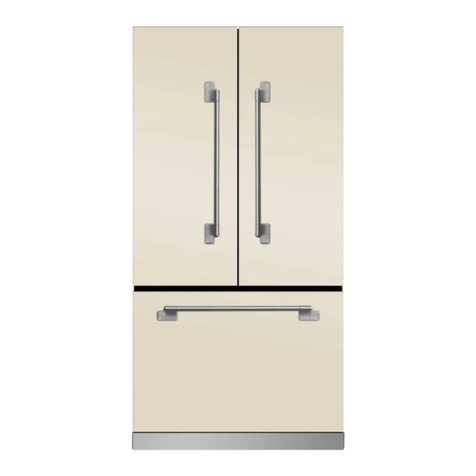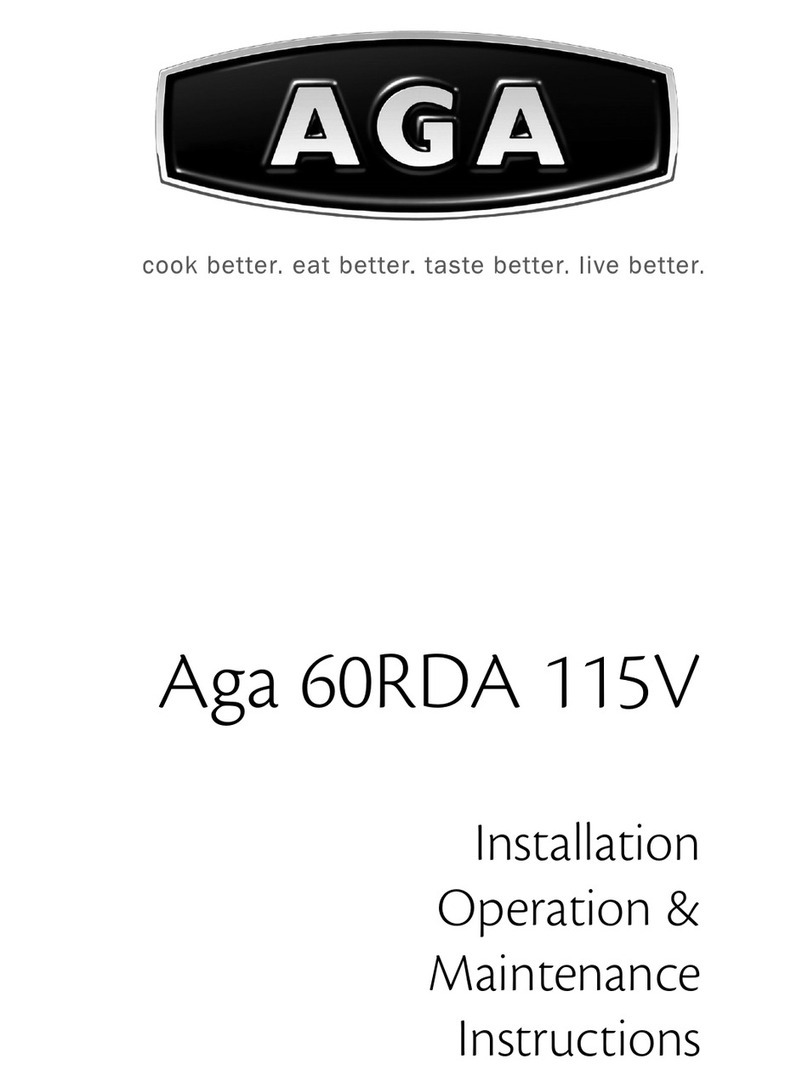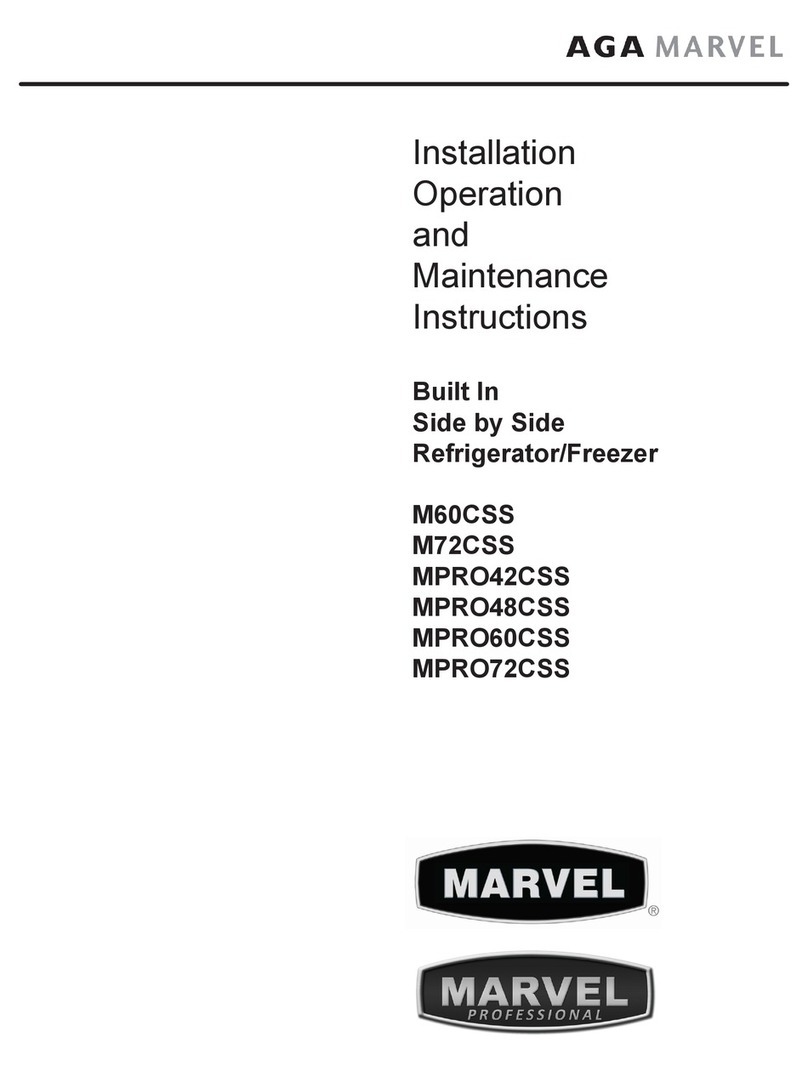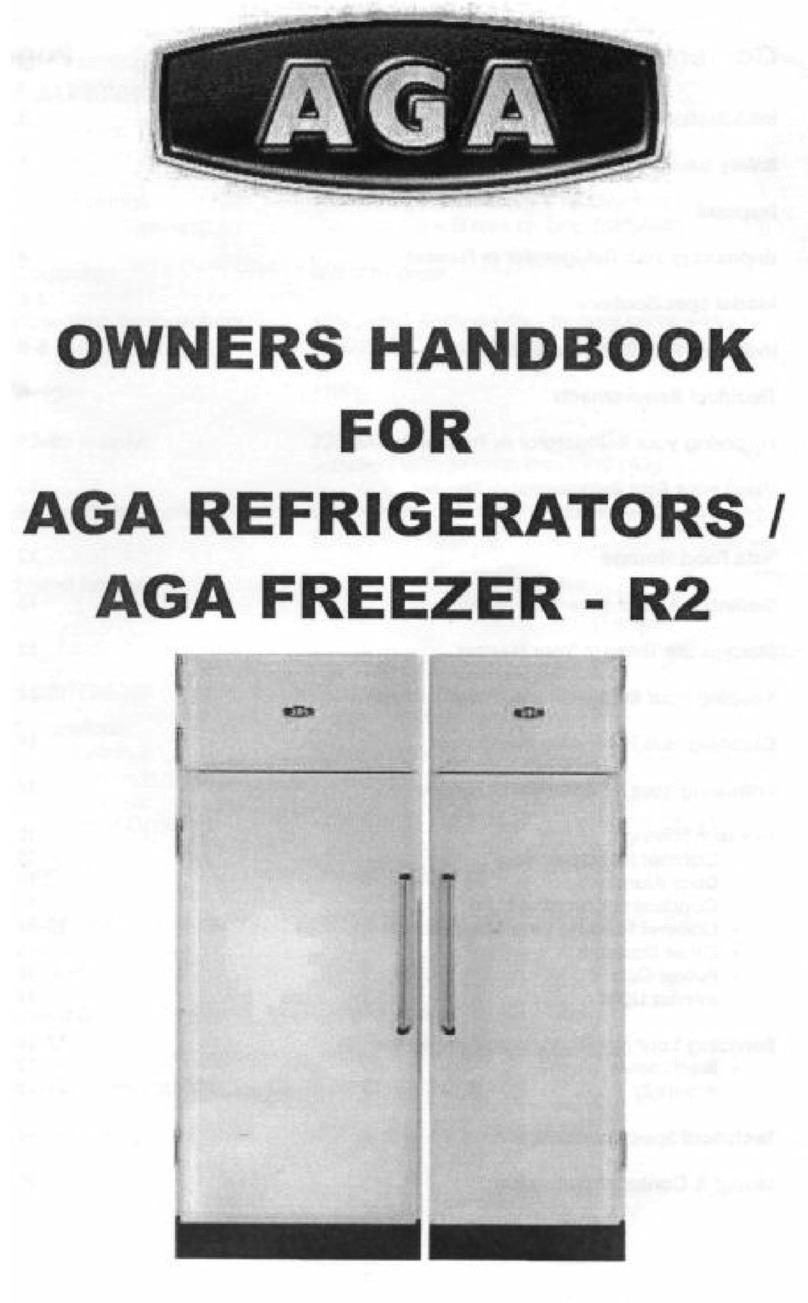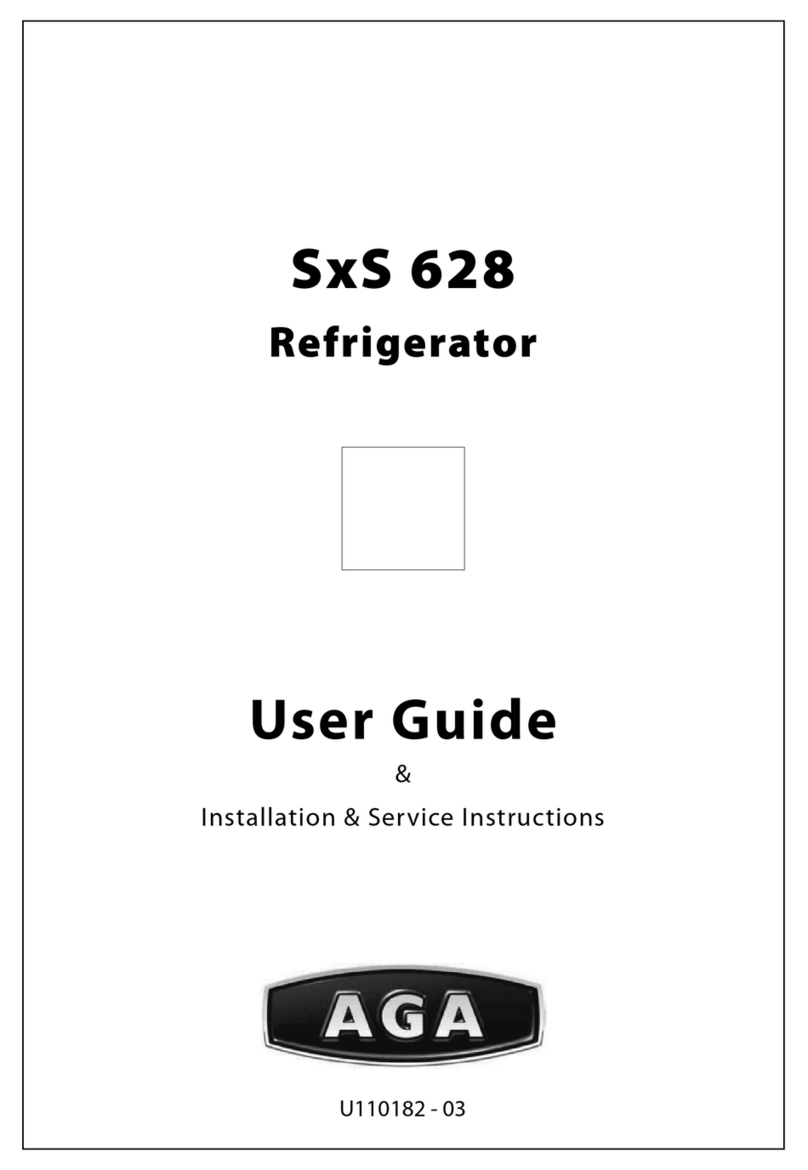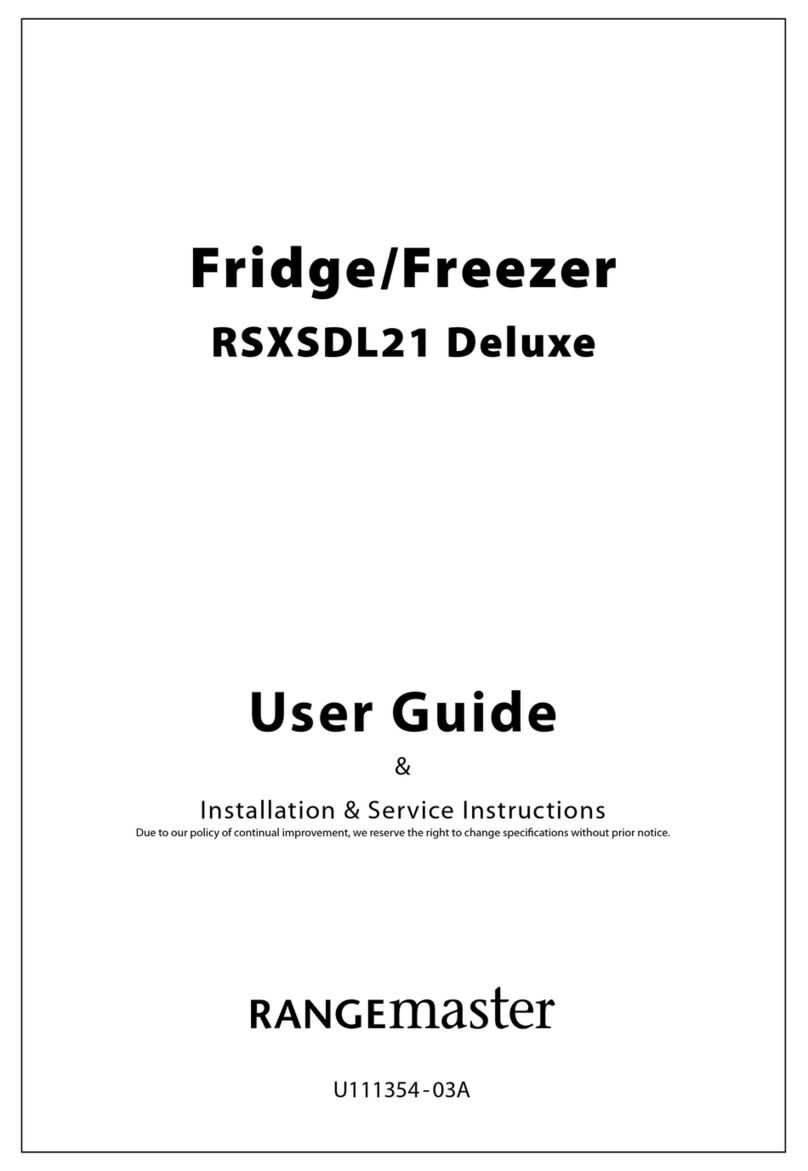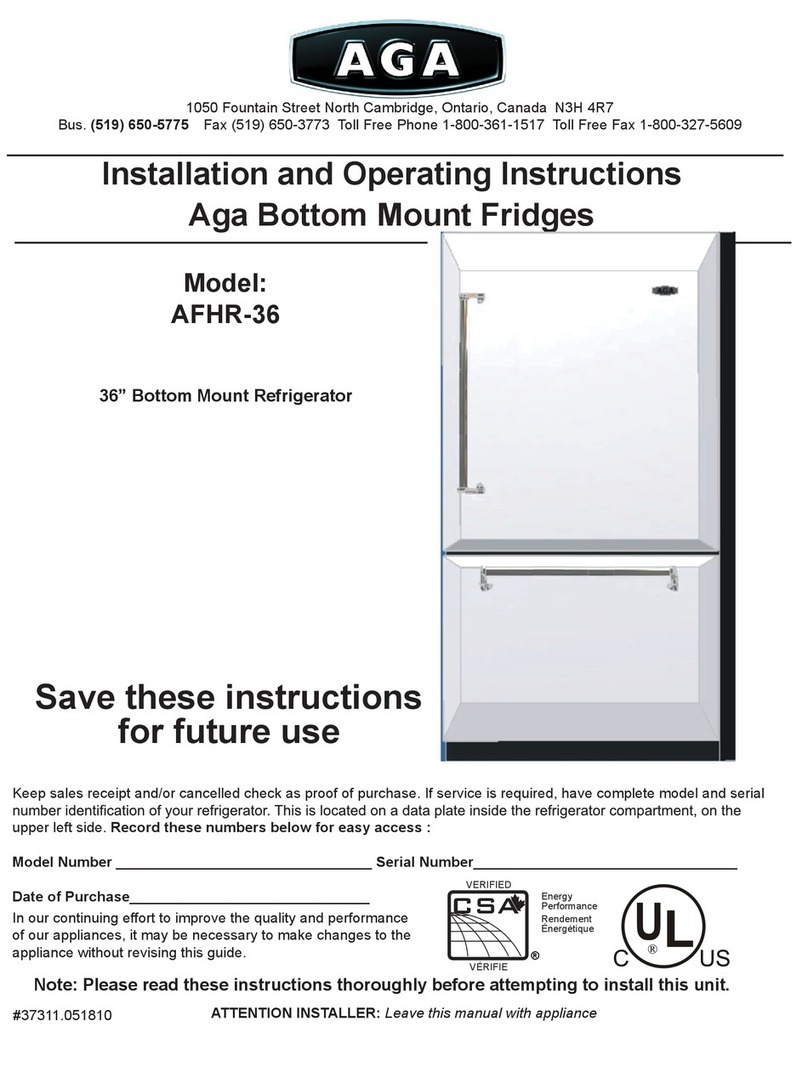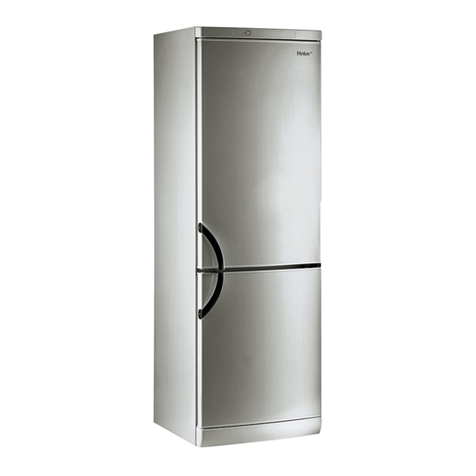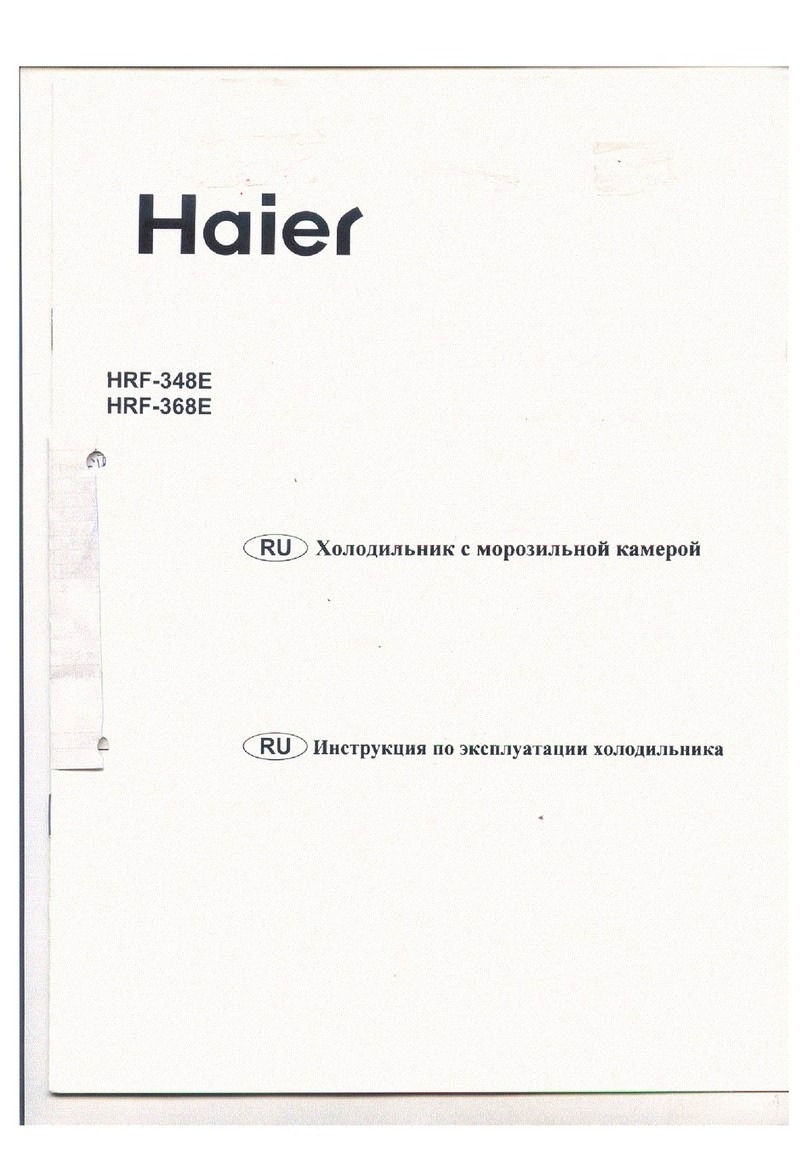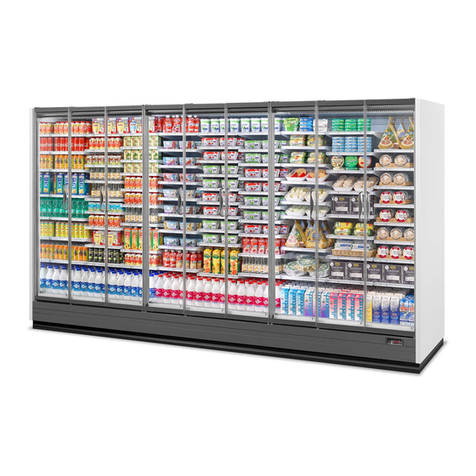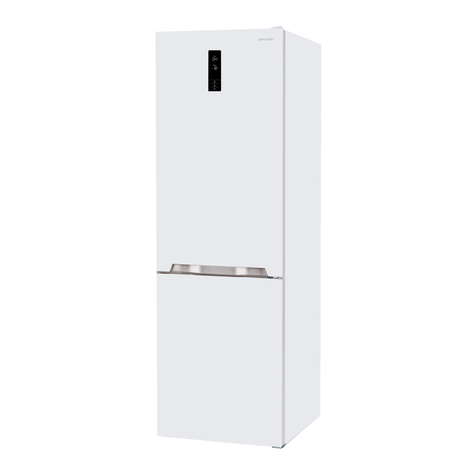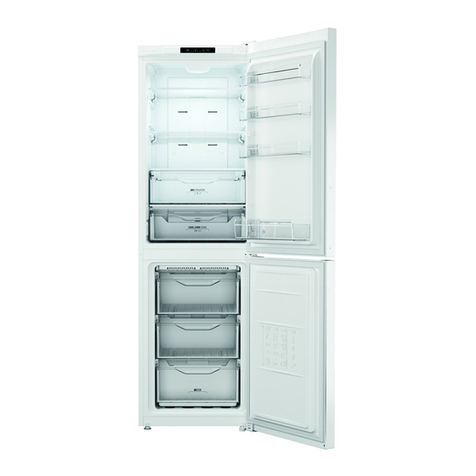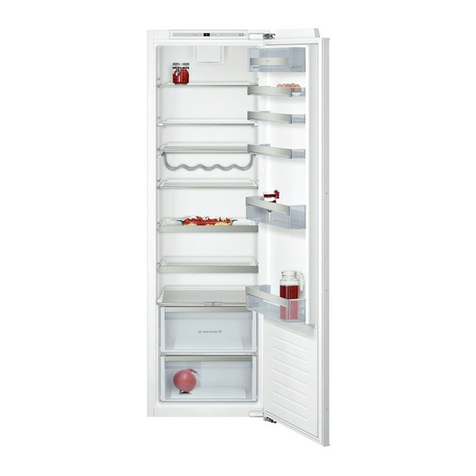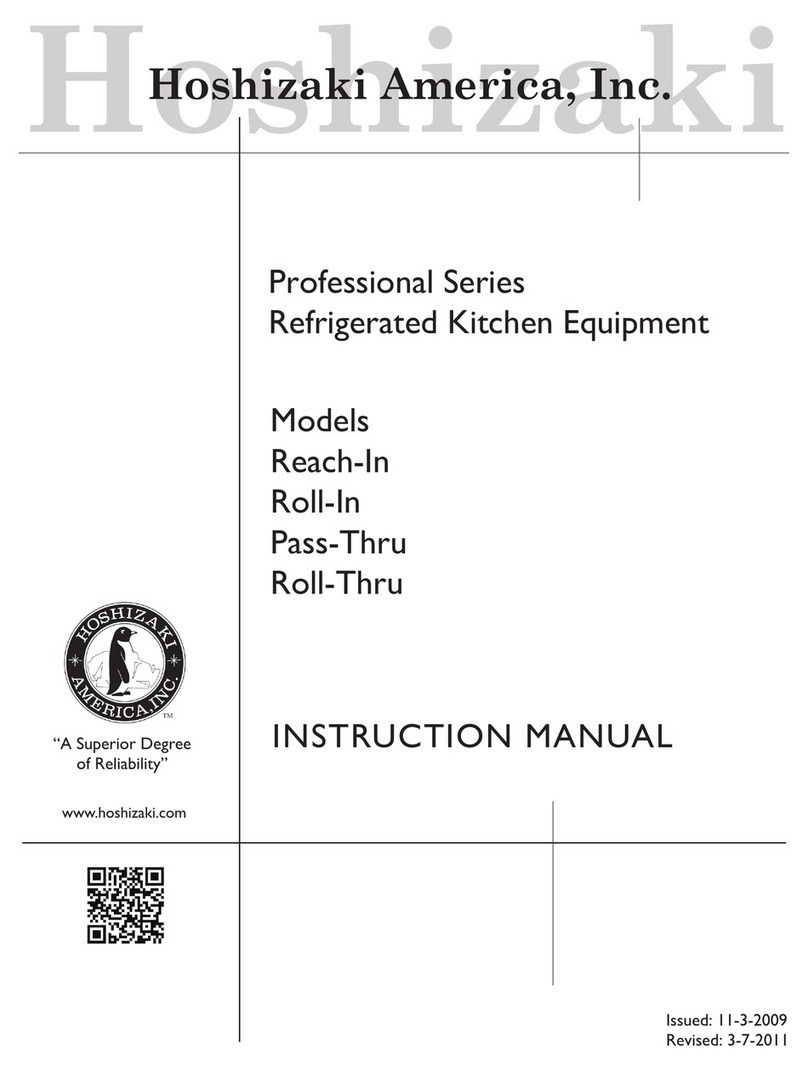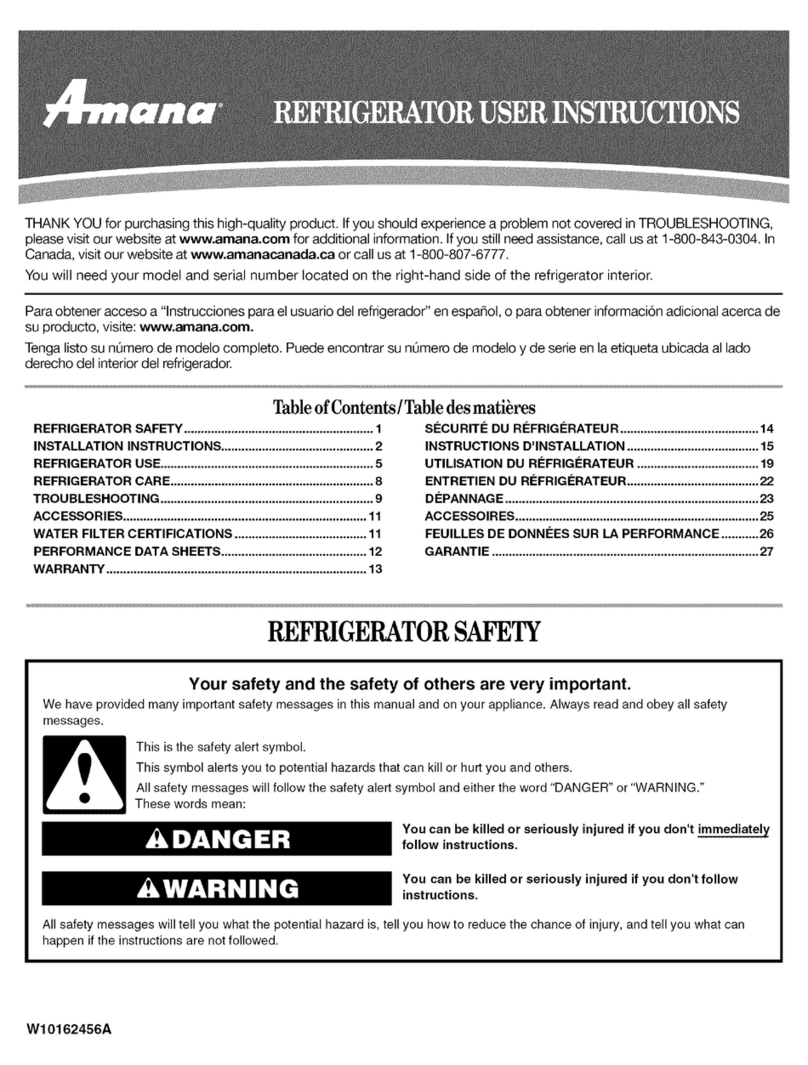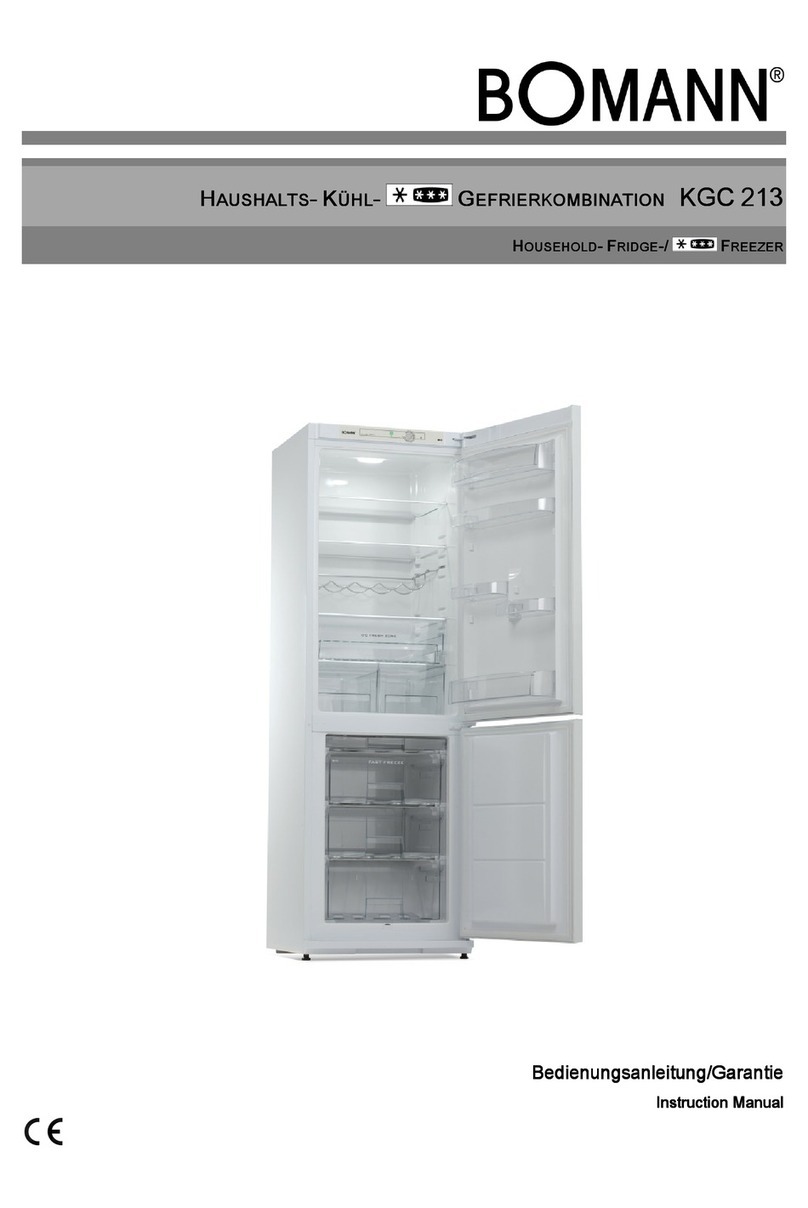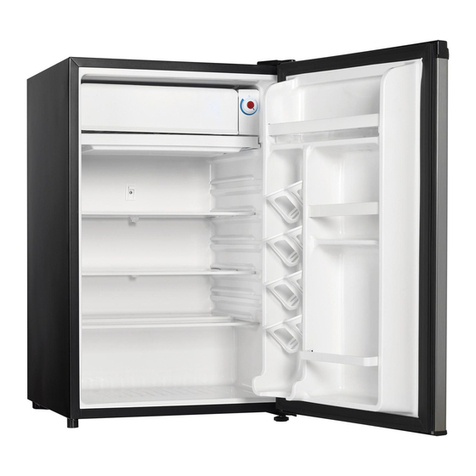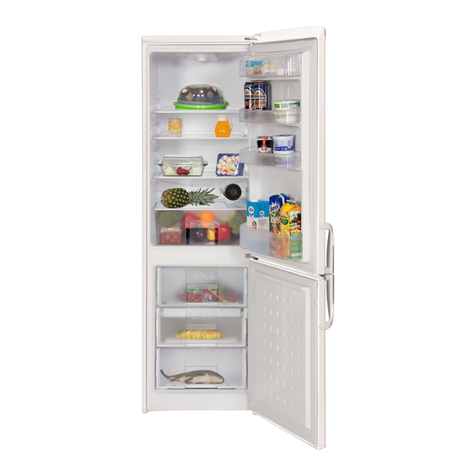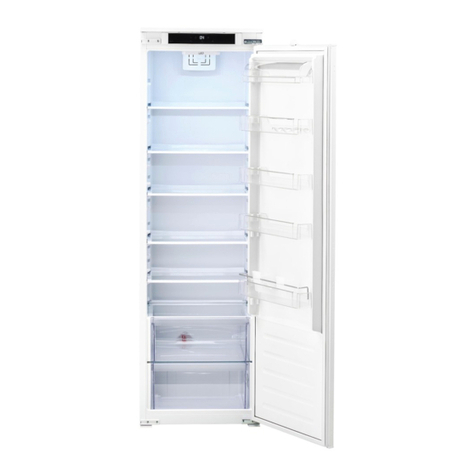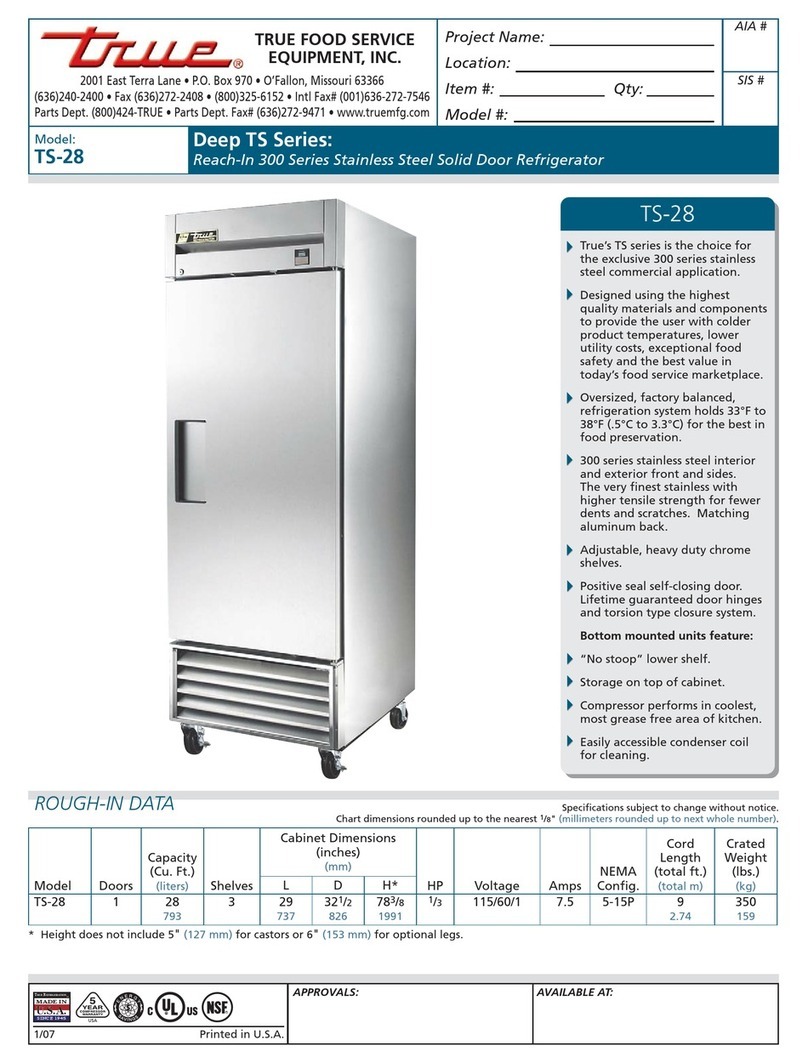
2
gas, but it is explosive. In the event
of a leak due to damage of the cooler
elements, move your appliance away
from open ames or heat sources and
ventilate the room where the appliance
is located for a few minutes.
• When replacing old appliances, make
sure that you have disabled any locking
mechanisms before disposal – it may
even be best to remove the appliance
door completely to prevent children from
becoming trapped inside the appliance.
• The appliance must be connected to the
power supply safely. Loose connections,
broken plugs and bare wires are a safety
hazard. Make sure that all connections are
sound.
• Before undertaking any routine
maintenance or minor repairs, disconnect
the appliance from the electrical supply.
• DO NOT touch cold surfaces of the
appliance while it is in use as this will cause
hands to stick to them leading to freezer
burns.
• When moving the appliance take care not
to damage the leads, pipes or condenser
unit. Should these parts become damaged,
contact a qualified service engineer.
• Effervescent liquids (fizzy drinks) should
never be frozen. These liquids expand
during freezing and this may lead to
the bottles/containers shattering or
exploding.
• Foods that are intended to be defrosted or
cooked first, such as breads or meats, must
not be eaten in their frozen state.
• If food looks or smells strange, DO NOT
attempt to eat it. If in doubt throw it
away. Spoiled food can be harmful to your
health.
• Never use sharp, metal implements to
scrape ice off the surface of this appliance.
Only use implements, which are fit for this
purpose (such as plastic scrapers) and use
carefully to avoid damaging the lining of
the appliance.
• The cooling system contains refrigerant
and oils, all of which are harmful to health
if leaked. Should leakage occur, disconnect
the appliance and ventilate the room it is
installed in. Take care to ensure that you
DO NOT get any coolant near to, or in,
your eyes. Contact a service engineer or
arrange to have the appliance removed.
DO NOT use the appliance under any
circumstances.
n WARNING: Keep ventilation openings, in
the appliance enclosure or in the built-in
structure, clear of obstruction.
n WARNING: DO NOT use mechanical
devices or other means to accelerate
the defrosting process, other than those
recommended by the manufacturer.
n WARNING: DO NOT use electrical
appliances inside the food storage
compartments of the appliance, unless
they are of the type recommended by
the manufacturer.
n WARNING: DO NOT damage the
refrigerant circuit.
n WARNING: In order to avoid any hazards
resulting from the instability of the
appliance, it must be xed in accordance
with the following instructions: If your
appliance uses R600a as a refrigerant
(this information will be provided on
the label of the cooler) you should
take care during transportation and
installation to prevent the cooler
elements from being damaged. R600a is
an environmentally friendly and natural
gas, but it is explosive. In the event
of a leak due to damage of the cooler
elements, move your appliance away
from open ames or heat sources and
ventilate the room where the appliance
is located for a few minutes.
